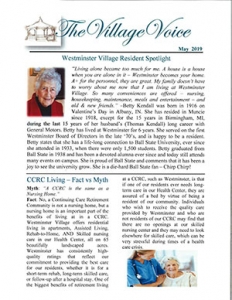Chaplain’s Corner: CXLVI
“Not Forgotten”
It’s a dreadful thing to be forgotten. For some people, the very fear of that thing is a real thing. It’s called athazagoraphobia-the fear that no one will remember who I am or what I have done, or that I ever had a place in this world.
Solomon understood. At the very end of a list of laments about the meaninglessness of life “under the sun”—that is, in this world and this world alone—he makes this observation: “No one remembers the former generations, and those yet to come will not be remembered by those who follow them.” (Ecclesiastes 1:11)
We admit that athazagoraphobia isn’t entirely irrational. Many fears are focused on things that realistically aren’t going to do us in. That would include ranidaphobia (fear of frogs), and hexakosiohekontahexaphobia (a paralyzing fear of the number 666).
But in point of fact, you really are going to be forgotten. Within five or six generations, it’s almost certain that no one in your family tree will have a sense of the “real you”—what made you tick, what made you laugh, what made you get up in the morning. It doesn’t take nearly as long to be forgotten in the workplace. “Institutional amnesia” will set in within a few weeks of your departure from the office. Won’t anyone remember that you were once Employee of the Month, and that you had such great ideas at team meetings, and that you saved the company from that third quarter financial disaster? Probably not.
In this world, you really are going to be forgotten. And there’s nothing you can do about it. Well that’s not entirely true.
You can attempt to be famous. Try to set a world record that will be hard to break. Or produce a work of art that will be appreciated for centuries. Or write some amazing words that a handful of admirers will read over and over again. Or you can try to be infamous. Do something outrageous, illegal or tragically unforgettable.
Athazagoraphobia leads some people to forfeit their character and even their lives if only they will be remembered.
The English poet Percy Bysshe Shelley (1792-1882) is best remembered, ironically, for his sonnet about a once-great world leader who is now no longer remembered, even though he did everything in his power to preserve his legacy. The poem is called “Ozymandias”.
It’s no wonder Solomon opens his book with the words, “Meaningless! Meaningless!
Everything is utter meaningless”. But here, for the first time we take issue with Solomon. That’s because if you have come to know Jesus, then you know more than the wisest king in the Old Testament.
We may ultimately be forgotten “under the sun” here in this world. But followers of Jesus have good reason to believe that life isn’t over when it’s over. And where there is life there is memory. Our Heavenly Father declares through Isaiah: “Can a mother forget her nursing child? Can she feel no love for the child she has borne? But even if that were possible, I would not forget you!” (Isaiah49:15) And the Apostle Paul, writing to the young believers in Corinth, says, “For now we see only a reflection as in a mirror, then (that is in the next world we shall see face to face, Now I know in part; then I shall know fully even as I am fully known”. (I Corinthians 13:12)
To be in God’s presence is to be known. And to be “remembered” in the sense that God fully pays attention to all our moments- in this world and the next.
You know that fear that may strike you from time to time- the lurking suspicion that no one really knows who you are, and that no one will ever remember you were even here?
By God’s grace you can forget about it.
Faithfully,
Ron Naylor, Chaplain




